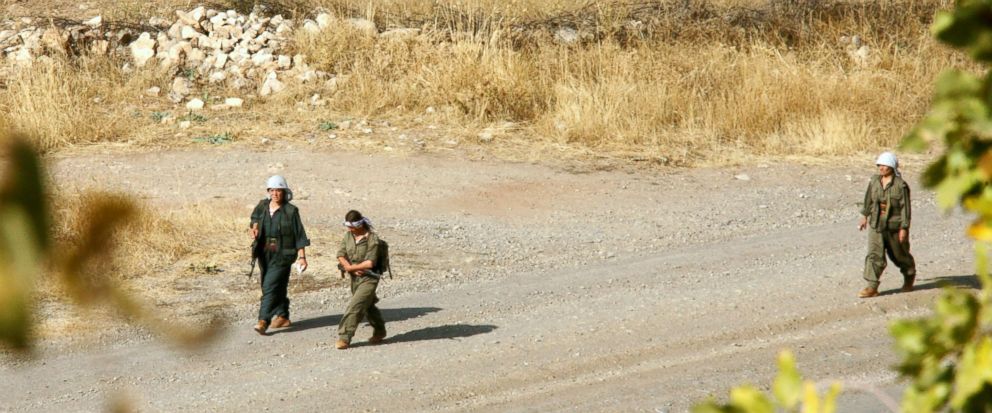Kurdish rebel group will withdraw from the town of Sinjar in northern Iraq on Friday, it said in a statement, following threats of attack from Turkey's president who has launched a series of airstrikes against suspected Kurdish rebel camps over the past week.
The Kurdistan Workers Party, or PKK, said it moved into Sinjar to protect the Yezidi people "from genocide" at the hands of the Islamic State group and are now withdrawing "having reached that aim," according to the statement.
PKK fighters moved into Sinjar — about 75 miles (120 kilometers) west of Mosul — in 2015 with an offensive led by Iraqi Kurdish fighters known as the Peshmerga and backed by the U.S.-led coalition.
Turkish President Recep Tayyip Erdogan threatened to expand an ongoing military offensive in the Syrian town of Afrin into other Kurdish-held areas across northern Syria and even into neighboring Iraq.
"We'll continue this process until we completely abolish this corridor," Erdogan said earlier this week, referring to a string of Kurdish-held town in northern Syria. "One night, we could suddenly enter Sinjar."
Turkey has launched a number of strikes against suspected PKK camps in Iraq's north over the past week. It views the PKK and some U.S.-backed Kurdish forces in Syria as terrorists.
Earlier, Iraq's Foreign Ministry condemned Turkey's attacks in northern Iraq, describing them as "violations" that led to the death of a number of civilians in a statement released late Thursday.
Also on Friday, Turkey's prime minister said his country was partially reopening its airspace to flights to Iraq's Kurdish region, after the central government restored authority at airports in the area.
Binali Yildirim said the airspace would be open to commercial and civilian flights to and from the city of Irbil but flights to the city of Suleymaniyah would not be permitted. He cited security concerns stemming from alleged Kurdish rebel activity targeting Turkey from the Suleymaniyah region.
Turkey has shut down its airspace to flights to the Kurdish region following a controversial referendum vote in northern Iraq's self-ruled Kurdish region six months ago that overwhelmingly backed independence from Baghdad.
The referendum was vehemently rejected by Baghdad, Turkey and Iraq's other neighbors, ratcheting up tensions in the region.


